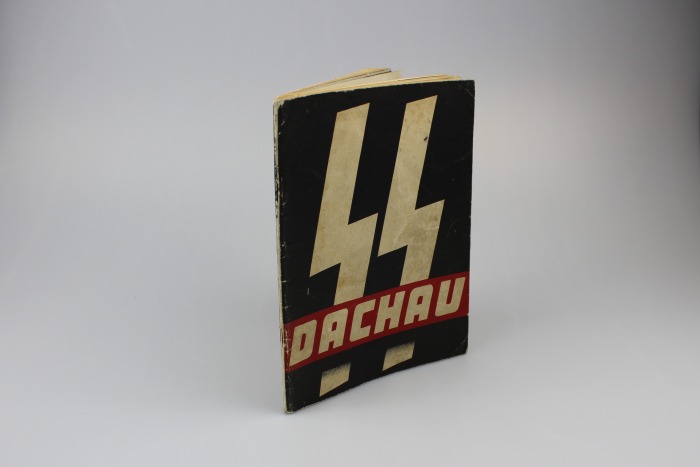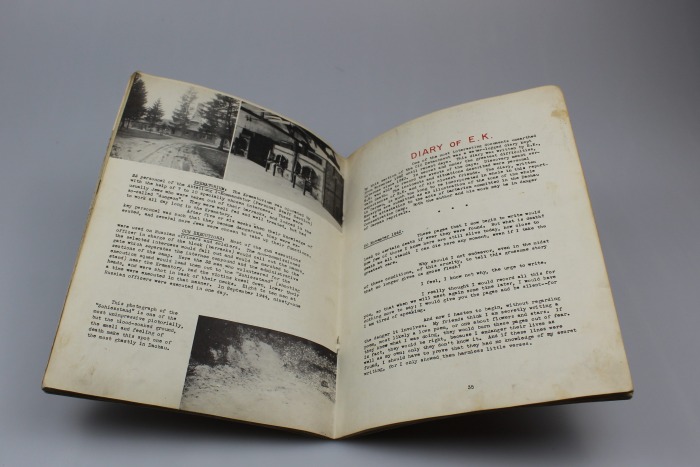Object: G2-Report
This audio track deals with the so-called “G2-Report” on the Dachau concentration camp, which is shown in the special exhibition on the “Dachau Trials”.
This report describes on 72 pages the first results of American investigations into the crimes committed in the Dachau concentration camp. The report was completed in May 1945 and made available to the public soon afterwards. The G2 Report is thus the first documentation dealing with the crimes committed in Dachau.
After the camp was liberated on 29 April 1945, US 7th Army investigators recognised the need to collect evidence and interrogate witnesses in order to get as clear a picture as possible of the crimes committed. Under the direction of the 7th US Army’s General Staff Division 2, the military intelligence service – known as G2 for short – members of various intelligence agencies wrote this report for internal use. In addition to the Office of Strategic Services, a predecessor of the Central Intelligence Agency, the Counter Intelligence Corps and the Psychological Warfare Branch also contributed to the preparation of the report.

Report compiled by the Intelligence Unit of the Seventh U.S. Army on the Dachau concentration camp (G2-Report), May 1945 - Dachau Concentration Camp Memorial

Report compiled by the Intelligence Unit of the Seventh U.S. Army on the Dachau concentration camp (G2-Report), May 1945 - Dachau Concentration Camp Memorial
The report includes chapters on the history of Dachau Concentration Camp, its organisational structure, the daily life of the prisoners and the medical experiments carried out on prisoners, among other things. The investigators compiled the information in cooperation with the former prisoners. Part of the report includes excerpts from the secret diary of the survivor Edgar Kupfer-Koberwitz. He was brought to Dachau concentration camp in November 1940 and worked in an external commando as a clerk for the Präzifix screw factory from November 1942.
The G2-report also includes an investigation by the Psychological Warfare Branch to determine what knowledge Dachau residents had about the camp. The investigators concluded that the majority of them, despite claims to the contrary, were aware of conditions in the camp.
You are currently viewing a placeholder content from Default. To access the actual content, click the button below. Please note that doing so will share data with third-party providers.
